Profile: Saleh al-Arouri, Hamas leader and strategist who gave jitters to Israel
By Press TV Website Staff
In his last freewheeling television interview with Press TV, less than two weeks before his assassination in an Israeli drone strike on Beirut’s southern suburb of Dahiyeh, Saleh al-Arouri spoke in detail about the Al-Aqsa Storm Operation and how it has changed the equations.
One of the celebrated military strategists, described by many as the mastermind of the October 7 operation that took the Zionist occupation and its Western backers by complete surprise, the deputy chief of the Hamas resistance movement said Hamas resistance fighters are people with a "right and a just cause" who are ready to sacrifice themselves for that cause – the liberation of Palestine.
On Tuesday, Arouri and his comrades, Samir Afandi (Abu ‘Amer) and Azzam al-Aqra’, and the martyrs Zaki Shahin, Mohammed al-Reis, Mohammed Bshasha and Ahmed Hamoud, were assassinated.
The horrific act of terror came as the Israeli regime’s genocidal campaign against Palestinians in the besieged Gaza Strip nears three months, leaving behind more than 22,000 fatalities, mostly children.
Arouri was the deputy chair of the Gaza-based resistance movement, who languished in Israeli jails for 18 years, suffered torture, and survived multiple assassination bids but never surrendered or retreated.
The 57-year-old was one of the founding members of Hamas’ military wing – the Ezz el-Din Qassam Brigades – and instrumental in planning and executing the Al-Aqsa Storm Operation (Al-Aqsa Flood) on October 7, which made him a prized target for the occupying entity.
Arouri mainly spearheaded the Qassam Brigades’ military operations in the occupied West Bank, the outcome of which has been visible in recent years with resistance significantly upping the ante.
The slain Hamas leader’s unflinching faith and confidence was what gave jitters to the Zionist enemy.
As he stated in a December 19 interview with the Press TV, the Israeli regime “can by no means wipe out Hamas” as the group is an “essential part” of the Palestinian society and fights for a big cause.
“Our ability to go ahead with fighting till the defeat of the occupation is 100% certain, that is what I said two months ago. Many people were asking if would Israel succeed. I replied we would meet six months or a year later, and then the Israelis would beg the world to get them out of the hell of resistance,” he said.
Arouri’s road to the top echelons of the Gaza-based resistance movement, which ultimately ended in his martyrdom, came after decades of fearless and determined struggle against the Israeli occupation.
Born in the Arura town in the occupied West Bank city of Ramallah, he was an active member of the Muslim Brotherhood from an early age and led an Islamic student union at Hebron University.
After the Hamas resistance movement came into existence in 1987, Arouri was one of its founding members and played a critical role in shaping the group's military operations against the occupation.
Between 1990 and 1992, the slain Hamas leader was frequently held by the regime under the so-called "administrative detention policy" without trial for his anti-occupation activities.
In 1992, he was arrested by the apartheid regime and had to spend 18 years in different Israeli jails, with a three-month break in 2007. Inside the prisons, he suffered brutal interrogation and torture.
Angry Palestinians take to the streets in the occupied West Bank to denounce Israel's assassination of Hamas deputy chief Saleh al-Arouri in Beirut. pic.twitter.com/OR95lEVBub
— Palestine Highlights (@PalHighlight) January 2, 2024
In 2010, following his release from captivity, Arouri was chosen as a member of the Hamas political bureau, which led him to negotiate the release of Palestinian prisoners (abductees) through Egyptian mediation in 2011.
As part of the swap deal, Israeli soldier Gilad Shalit was released by Hamas in exchange for 1,027 Palestinian abductees held in Israeli prisons, including Hamas leader in Gaza Yahya Sinwar.
In 2015, Arouri was declared a “specially designated global terrorist” by the US government, under which American citizens were not allowed to have any financial transactions with him.
Three years later, in 2018, the US State Department announced a bounty of $5 million for any information leading to the Hamas deputy chief’s capture, along with some senior leaders of the Hezbollah resistance movement.
Due to his high stature in the Palestinian resistance camp, Israeli spy agency Mossad had designated him as a key target, which Israeli newspaper Yedioth Ahronoth also reported on October 25, putting him on a list of six top Hamas leaders “in the crosshairs of the Israeli fire.”
On October 31, weeks after the launch of the Al-Aqsa Storm Operation, Israeli regime forces carried out a raid on his house in the town of Arura in the occupied West Bank city of Ramallah.
According to media reports, Arouri was a close confidante of the late Al-Qassam leader Ahmed Jabari and they both worked together to plan and execute the Hamas military wing’s operations.
He also shared a close relationship with leaders of other resistance movements in the region as well as the Islamic Republic of Iran and was also appreciative of its support for the Axis of Resistance.
CCTV footage captures the moment Israeli drone strike assassinated Hamas deputy chief Saleh Al-Arouri and six others in Beirut on Tuesday. pic.twitter.com/laKLY7tMB6
— Palestine Highlights (@PalHighlight) January 2, 2024
Speaking to Press TV last month, he hailed Iran’s support for the Palestinian cause and said all Muslim countries should emulate Iran and take decisive actions to help the Palestinians in their struggle.
In the past, he also spoke highly of Iran’s top anti-terror commander Gen. Qassem Soleimani and his incredible support for the Palestinian cause, calling him the ‘martyr of al-Quds.’
Hamas termed Arouri's assassination a “cowardly act” and said attacks on Palestinians “inside and outside Palestine will not succeed in breaking the will and steadfastness of our people or undermining the continuation of their courageous resistance”.
“It proves once again the abject failure of this enemy to achieve any of its aggressive goals in the Gaza Strip,” the Gaza-based resistance group said.
Lebanon’s caretaker Prime Minister Najib Mikati slammed the Israeli attack on Lebanese soil and warned against the “Israeli political upper echelon resorting to exporting its failures in Gaza to the southern border to impose new facts on the ground and change the rules of engagement”.
Hezbollah resistance movement, in its statement, said the attack “will not go without punishment”.
Iran’s foreign ministry also condemned the killing and said it was the result of the “heavy and irreparable defeat” faced by the Israeli regime in the Gaza Strip since October 7.
Importantly, before the events of October 7, Israeli Premier Benjamin Netanyahu had threatened to kill Arouri.
US-backed riots suffered 'humiliating' defeat in Iran: Yemeni leader
Pezeshkian: ‘Unholy rage’ fueled by Iran’s enemies after June defeat
Iran condemns Israeli demolition of UNRWA headquarters in occupied al-Quds
Denmark reasserts Greenland sovereignty as Trump claims ‘total access’
Iran’s political legitimacy comes from ballots and popular will, not foreign powers
VIDEO | Press TV's news headlines
VIDEO | The reckless US
Qalibaf: Recent unrest a 'complementary link' in 12-day war against Iran


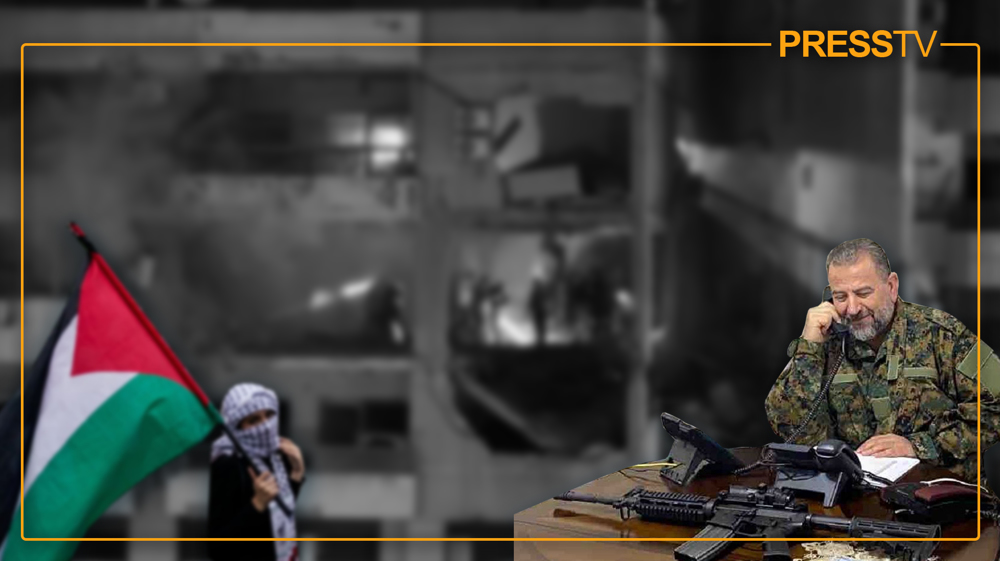
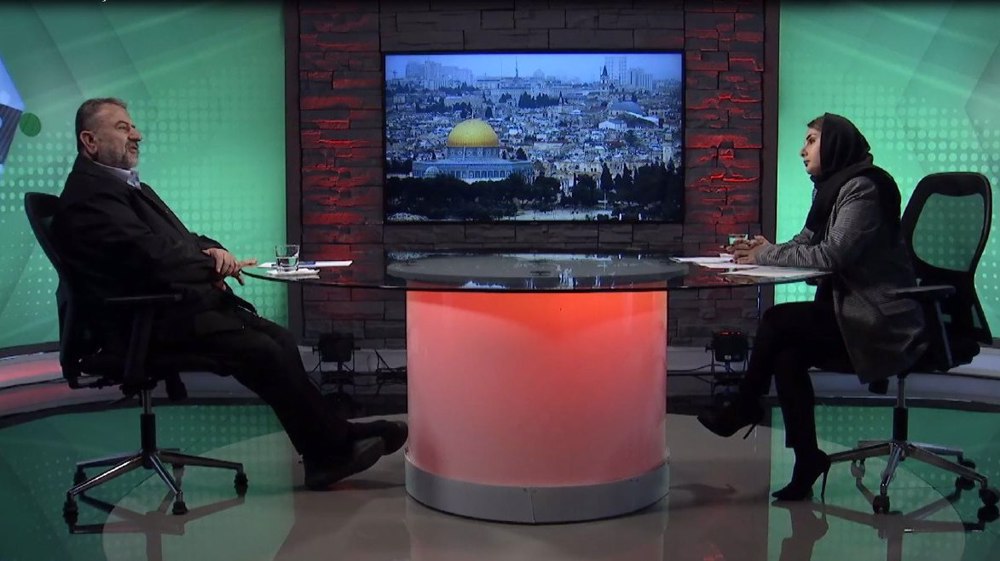


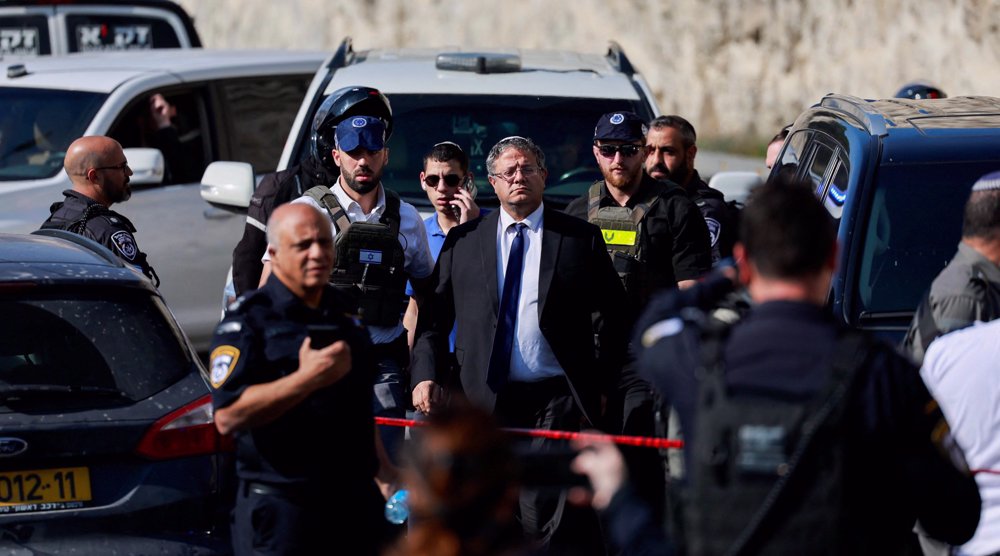



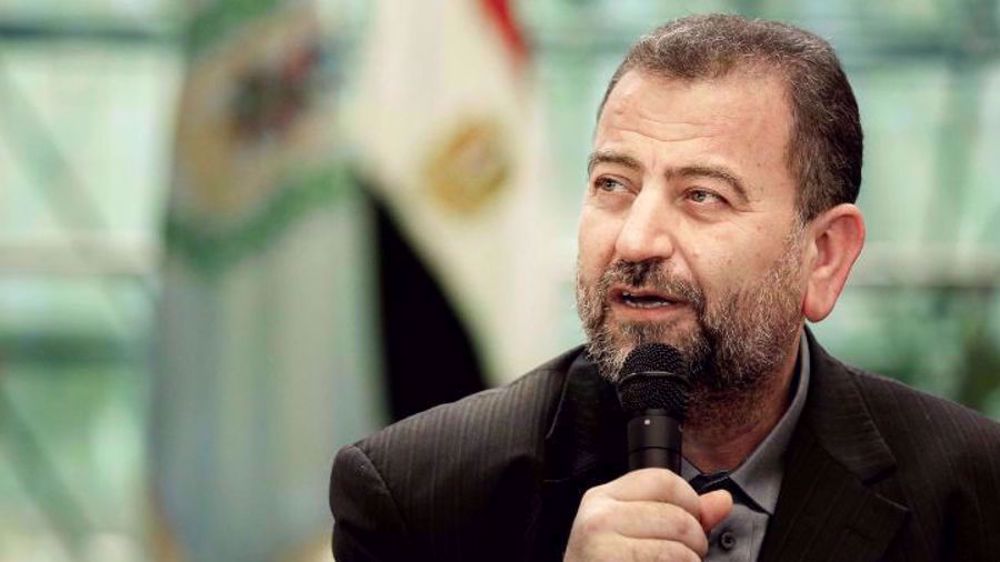
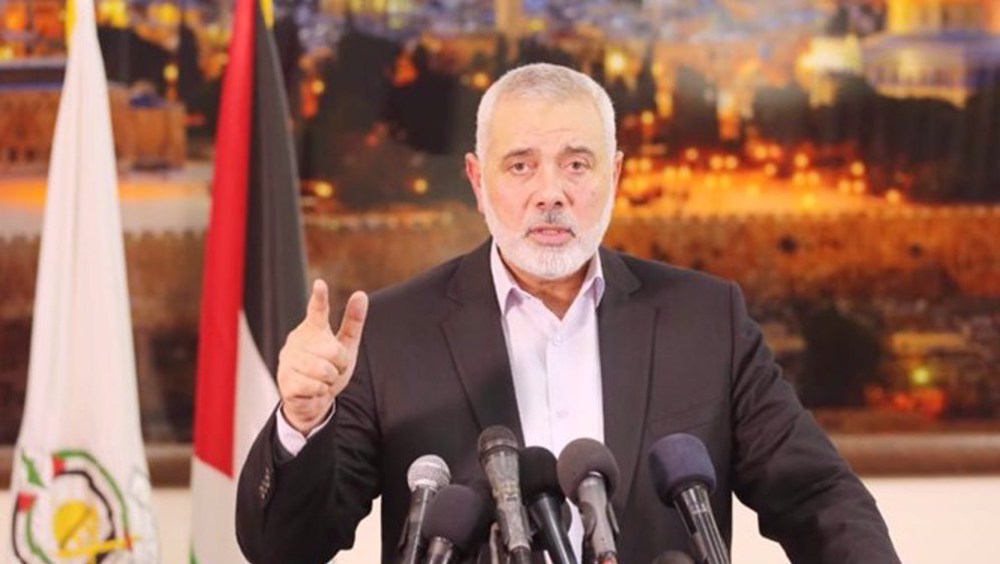
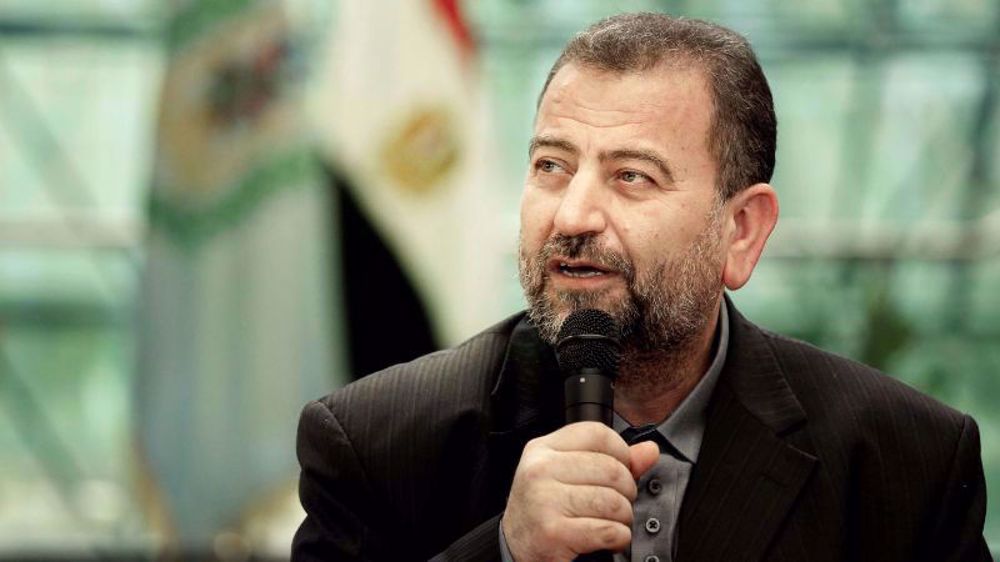
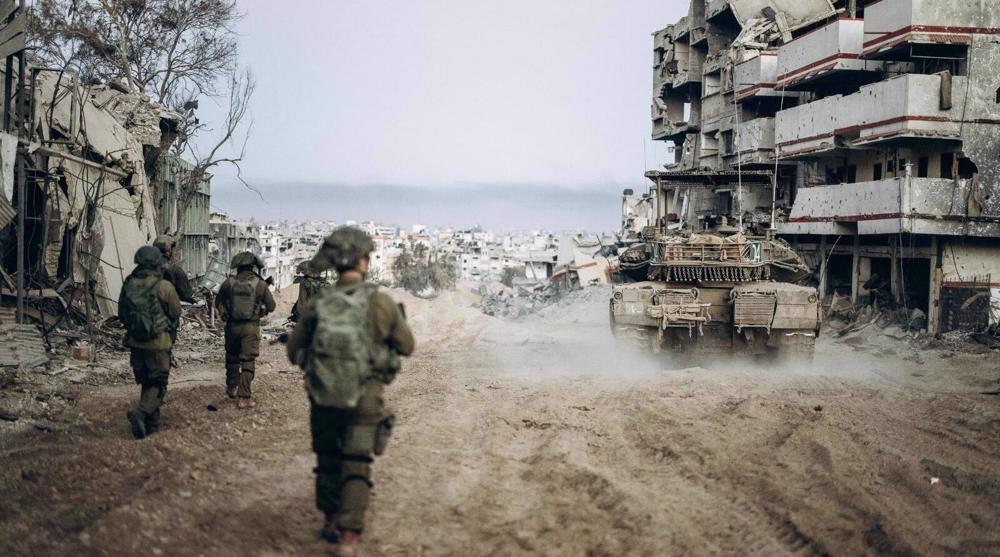
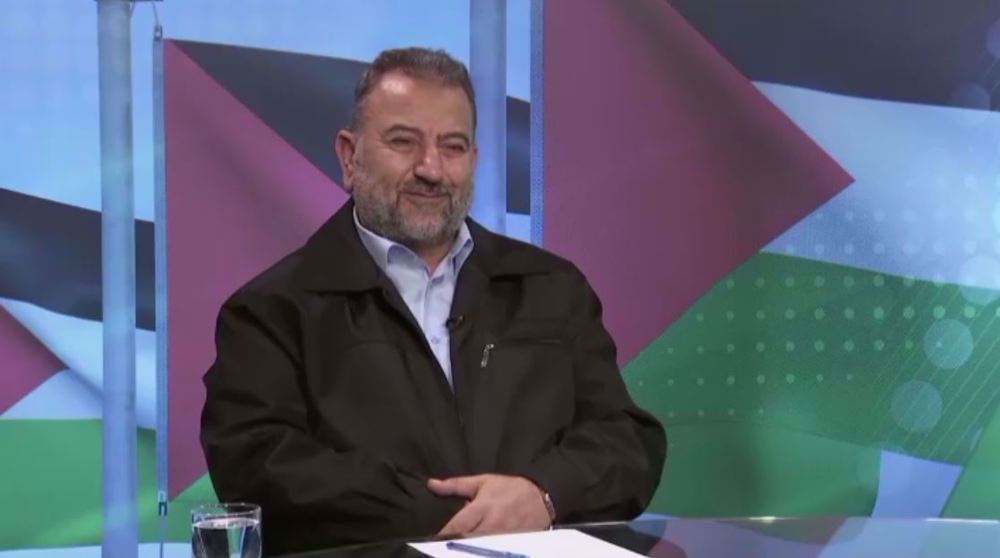

 This makes it easy to access the Press TV website
This makes it easy to access the Press TV website